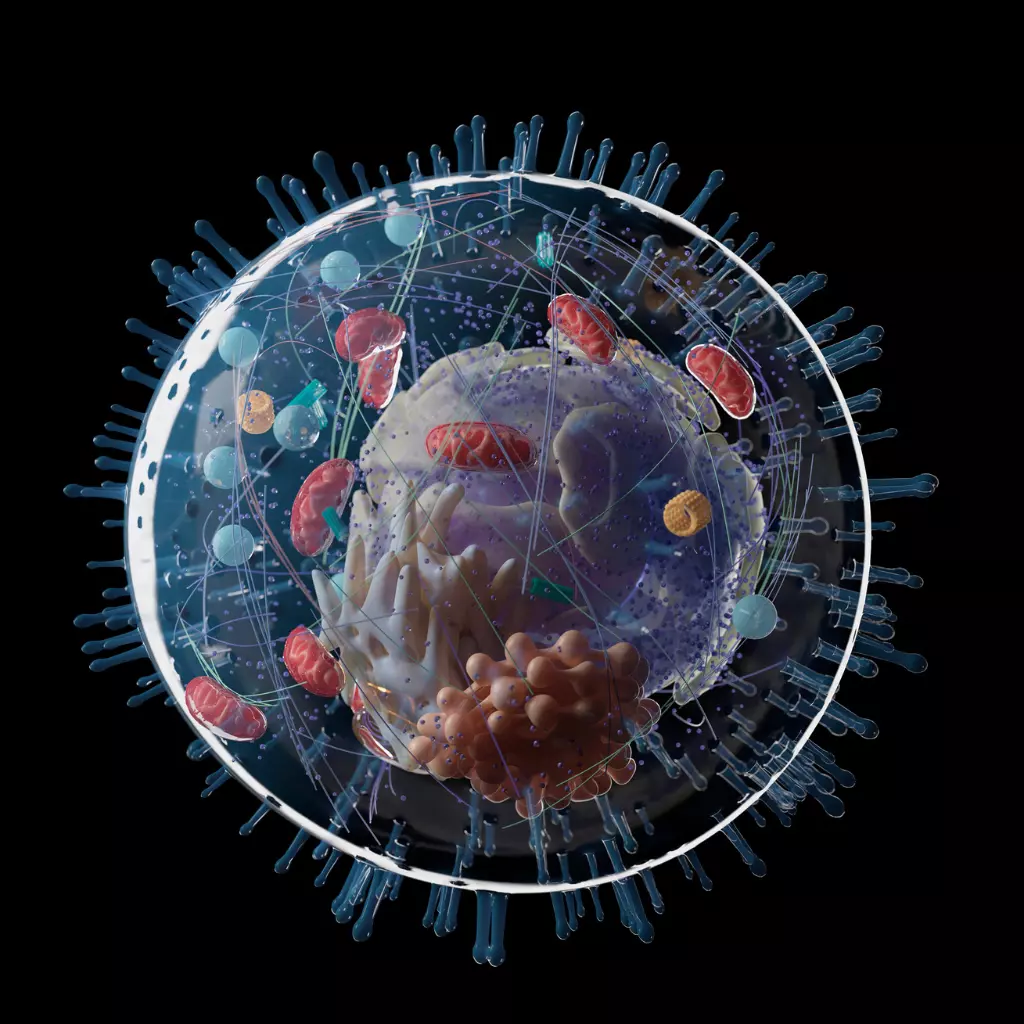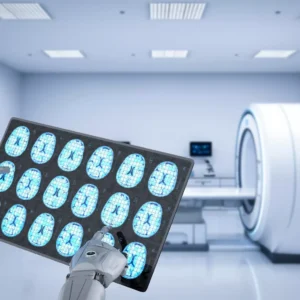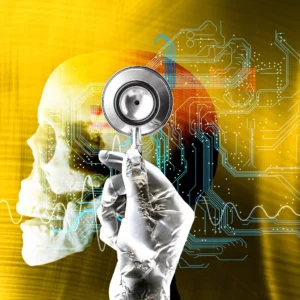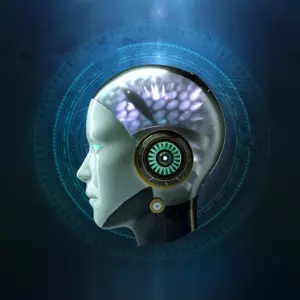
Chronic Disease Management
Enhanced by AI
Chronic diseases – a global healthcare challenge affecting millions. But what if there was a more innovative way to combat this? Enter Artificial Intelligence.
AI’s role in chronic disease management redefines how we approach these persistent health issues. From diabetes to heart disease, AI-driven tools and techniques pave the way for timely interventions, tailor-made treatments, and constant patient monitoring.
The bonus? Huge potential savings for the healthcare sector. As we integrate wearables and predictive analytics into the care routine, patients receive personalized care, and clinicians get the upper hand with advanced training.
This article promises a journey – from understanding the core challenges of chronic diseases to unveiling the groundbreaking innovations that AI brings to the table. Let’s delve into this promising path forward.
Table of Contents

Arindam Roy
An Automation Consultant with 25+ years of IT Experience
The Chronic Disease Challenge
Chronic diseases, by definition, persist over long periods and demand consistent care. Such conditions, including diabetes, heart ailments, and respiratory disorders, often heavily affect patients and the healthcare system. Globally, they account for a staggering number of fatalities, making them a significant public health concern.
Now, factor in the rising healthcare costs, the constant need for patient monitoring, and the challenges associated with adherence to treatment plans. It quickly becomes clear why managing these diseases is both complex and resource-intensive. Yet, amidst these challenges lies an opportunity. AI’s role in chronic disease management has emerged as a beacon of hope, promising a shift in tackling these ailments.
While effective to some extent, the traditional approach to chronic diseases often lacks a personalized touch. Every patient’s experience with a condition, say diabetes, can be vastly different based on genetics, lifestyle, and other factors. Recognizing these unique patterns and tailoring treatment plans requires lots of data. Here’s where AI-driven analytics comes into play.
Harnessing the power of AI means diving deep into a patient’s health data, understanding their unique challenges, and devising more effective strategies to counteract them. By integrating AI and predictive analytics into chronic disease care, there’s potential to not only enhance patient outcomes but also dramatically reduce healthcare costs. This integration paves the way for more focused treatments, better patient monitoring, and improved quality of life.
The battle against chronic diseases has always been arduous. But with the rising prominence of AI, there’s renewed hope. As we continue exploring the depths of AI in healthcare, this technology might be the game-changer we’ve been waiting for.
Forbes Articles related to AI usage in Healthcare:
AI's Role in Diabetes Care
Diabetes, a chronic ailment that affects millions worldwide, is notorious for its unpredictable nature. The need to constantly monitor blood sugar levels, adjust insulin doses, and watch one’s diet makes diabetes management a full-time job for many. This is where AI’s role in chronic disease management starts shining brightly.
Gone are the days when patients solely relied on routine blood tests and manual logs. Today, AI-driven diabetes management tools are revolutionizing care. These tools process vast amounts of data in real-time, helping predict blood sugar spikes or drops before they happen. Imagine a system alerting you to a potential sugar crash hours in advance. That’s the power of AI in action.
Continuous glucose monitors (CGMs) are evolving with AI integration, making them more intelligent daily. They track glucose levels and learn from a patient’s patterns, offering recommendations on insulin dosage and even dietary changes. This proactive approach reduces the risk of complications and ensures a smoother day-to-day experience for diabetes patients.
Another significant stride is the development of AI-powered insulin pumps. These devices can autonomously adjust insulin delivery based on real-time data, mimicking a healthy pancreas’ functions. This dynamic adjustment ensures that patients maintain optimal blood sugar levels, reducing the hassles of manual calculations and injections.
But it doesn’t end there. AI in diabetes care also extends to mobile applications that guide dietary choices, track exercise routines and offer holistic care advice. These apps integrate seamlessly with wearables, making chronic care more accessible and user-friendly.
In essence, diabetes, once a condition that demanded constant vigilance, is now being reshaped by AI. AI’s role in diabetes management promises better health outcomes and offers patients a chance at a life less dictated by their condition. The future of diabetes care, fueled by AI, certainly looks brighter and more promising.
Predictive Tools in Cardiac Care
The heart, our vital organ, has complexities that sometimes elude even the most trained eyes. With cardiovascular diseases becoming prevalent, timely diagnosis and proactive management are crucial. AI’s role in chronic disease management promises transformative changes in this sphere.
Traditional cardiac care, while invaluable, can sometimes miss subtle signs that foretell major cardiac events. Enter AI-powered predictive tools. These sophisticated systems leverage vast datasets, studying patterns often unnoticed in routine examinations. Even slight changes in heart rhythms or abnormalities in ECG readings can be detected thanks to AI, allowing for prompt and proactive intervention.
One groundbreaking innovation is the AI-enhanced echocardiogram analysis. This tool can quickly scan through echocardiogram images, pinpointing abnormalities with impressive precision. Not only does this reduce diagnosis time, but it also minimizes human error, ensuring that patients receive timely and accurate care.
Wearable tech, another booming domain, now integrates AI-driven predictive analytics for cardiac monitoring. Devices like smartwatches can now detect irregular heartbeats, lowered heart rate variability, and other potential red flags, notifying users to seek medical attention. Such timely alerts could mean the difference between a routine doctor’s visit and an emergency room rush.
Furthermore, AI in cardiac care extends to rehabilitation. Patients can benefit from personalized AI-driven rehab routines based on their recovery rate, age, and other vital parameters after cardiac events. This ensures faster and safer recovery, allowing patients to reclaim their lives sooner.
As we stand at the cusp of a healthcare revolution, it’s evident that predictive tools powered by AI are set to reshape cardiac care. These innovations, embedded in AI’s role in chronic disease management, herald a future where cardiac patients can expect more accurate diagnoses, proactive interventions, and holistic, personalized care. The heart of medicine is indeed getting a technological upgrade.
Tailoring Treatments for Individual Patients
When it comes to chronic diseases, there isn’t a one-size-fits-all solution. Individuals’ unique genetic makeup, lifestyle, and medical history are vital to their illness and recovery. Recognizing this, AI’s role in chronic disease management is steering the medical world toward more individualized treatments.
The medical realm has been chasing the dream of personalized medicine for years. AI brings this dream closer to reality. By diving deep into patient data, AI algorithms can pinpoint patterns, offering insights that might remain hidden in conventional analyses. For instance, AI-driven genomic sequencing can identify mutations that dictate tumour behaviour in cancer care. With such information, oncologists can prescribe tailored treatments targeting these mutations.
Similarly, in diabetes, AI’s predictive analysis can forecast blood sugar fluctuations based on a patient’s diet, activity level, and medication adherence. This allows healthcare providers to design a bespoke diabetes management plan, offering optimal control with minimal disruptions to the patient’s daily life.
Wearable devices, now smarter with AI, enhance this personal touch in chronic care. These gadgets track and analyze real-time health data, from heart rates to sleep patterns. Such continuous monitoring facilitates adjusting treatment plans as required, ensuring patients receive the proper care at the right time.
However, it’s not just about physical metrics. AI’s prowess in psychological analysis aids in understanding a patient’s mental state, which is crucial in conditions like depression or anxiety disorders. Here, personalized interventions can mean the difference between recovery and relapse.
As we delve deeper into the intricacies of AI in healthcare, it’s clear that the era of generic treatments is waning. AI’s role in chronic disease management heralds a new age where treatments are tailored, responsive, and, most importantly, centred around the individual. It’s a promising step toward a future where every patient feels seen, heard, and uniquely cared for.
Wearable Tech in Monitoring and Management
The era of passive healthcare, where patients primarily interacted with the medical system during check-ups or crises, is shifting. Thanks to the technological marvels of wearable tech, continuous health monitoring has become part of our daily lives. Central to this transformation is AI’s role in chronic disease management.
Wearable devices like smartwatches and fitness trackers have grown beyond counting steps or tracking sleep. Powered by AI, these gadgets can now detect abnormalities like irregular heartbeats or drops in oxygen levels. This real-time health monitoring, facilitated by AI, means potential health issues can be flagged long before they escalate.
For patients with chronic conditions, this is game-changing. Consider those with cardiac ailments; AI-driven wearable tech can provide crucial data on heart rhythms, alerting users and medical professionals to potential arrhythmias or ischemic events. The immediacy of such alerts allows for swift interventions, possibly preventing major cardiac episodes.
In diabetes, wearables integrated with AI algorithms can predict blood glucose variations based on physical activity, food intake, and stress levels. Such insights empower patients to make timely adjustments, ensuring their blood sugar remains within desired ranges.
But it’s not just about immediate alerts. Wearable tech in chronic disease management also aids in long-term health strategies. By collecting and analyzing health metrics over extended periods, AI can identify patterns, helping healthcare providers refine treatment plans, adjust medications, or recommend lifestyle changes.
Lastly, the synergy of wearable tech and AI also holds promise in improving medication adherence. Gentle reminders, tailored insights, and even gamified health challenges can motivate users to stay on course with their treatments.
Are you tired of constantly worrying about your chronic disease and struggling to keep up with your health goals? Well, worry no more! With the help of AI-powered wearable technology, you can now take charge of your health, bridge the gap between you and your health goals, and enjoy a happier, healthier life! With real-time data at their fingertips, patients and healthcare professionals are better equipped to navigate the complexities of chronic conditions, ensuring better outcomes and healthier futures.
Enhancing Treatment Adherence
It’s not just recommended but imperative that individuals with chronic conditions adhere to their prescribed treatments. However, real-world challenges often become barriers, from forgetfulness to complex medication schedules. AI’s role in chronic disease management emerges as a beacon of hope in addressing this.
The first obstacle to adherence often lies in comprehension. Patients sometimes need help understanding the importance of their medications or the implications of skipping doses. AI-driven patient education platforms come into play here. By curating personalized content, these platforms elucidate treatments’ whys and hows, making patients more inclined to adhere.
Medication timing is another hurdle. With smart home devices integrating AI algorithms, timely reminders have become more innovative. Rather than just alerting about a dose, they consider real-time factors: Did the patient have a meal? Is it bedtime? Such contextual reminders ensure that medications align well with daily routines, enhancing adherence.
Beyond reminders, AI’s predictive analytics are a boon. By studying a patient’s behaviour, AI can foresee potential adherence challenges. For instance, if a diabetic patient’s tracking indicates less physical activity or dietary changes, AI systems can send targeted messages or resources, preemptively addressing factors that might deter medication adherence.
Wearable tech, as we’ve seen, is another powerful tool in this journey. These devices track medication effects and nudge patients towards adherence through feedback loops. Visualizing improvements in health metrics can motivate continued compliance with treatments.
The crux lies in the synergy between AI and human psychology. AI’s role in enhancing treatment adherence is more than just automation—it’s about understanding, supporting, and guiding. By bridging the information gap, providing timely reminders, and offering predictive insights, AI ensures that chronic patients are not just prescribed treatments but truly stick to them. In the long run, such adherence is vital for health outcomes and a patient’s overall quality of life.
Economic Implications and Savings
Chronic diseases not only weigh heavily on patients but also strain the economic fabric of healthcare systems worldwide. The continual care, frequent hospitalizations, and long-term treatments all contribute to escalating costs. This is where AI’s role in chronic disease management unfurls its potential for substantial economic relief.
Foremost, early diagnosis made possible by AI drastically reduces long-term care costs. Early detection can circumvent intensive treatments for conditions like cancer or heart disease, which are both medically taxing and financially draining. By identifying diseases in nascent stages, AI-driven diagnostic tools can save healthcare systems millions, if not billions, annually.
Personalized treatments, another cornerstone of AI’s influence, ensure patients receive the most efficient care for their unique needs. Reducing the trial-and-error approach in treatments minimizes unnecessary medical interventions. The economic ripple effect? Reduced medical bills for patients and lower overall treatment costs for healthcare providers.
Moreover, hospital admissions have declined with wearable tech in chronic disease management. Real-time monitoring means anomalies are detected early, often allowing for outpatient interventions instead of costly hospital stays.
Then, there’s the realm of administrative tasks. Much healthcare expenditure is tied to paperwork, scheduling, and other backend operations. AI-driven administrative solutions streamline these processes, bringing about significant cost savings.
Did you know that cost reduction is not the only benefit of AI in the healthcare industry? By improving disease management, AI can help people lead healthier lives, translating into a more productive and resilient workforce. Imagine fewer sick days and a healthier and happier population. The economic value of this cannot be overstated!
In the grand tapestry of healthcare economics, AI’s role in chronic disease management stands out as a thread of sustainability and efficiency. AI is shaping a future where quality healthcare is optimized by enhancing diagnosis accuracy, personalizing treatments, reducing administrative burdens, and ensuring better patient outcomes cost-effectively.
Training and Equipping Healthcare Professionals
Integrating AI into healthcare isn’t merely about algorithms and tech; it’s about the humans at the frontline: our healthcare professionals. For AI’s role in chronic disease management to be seamlessly woven into the clinical landscape, there’s a pressing need to train and equip these professionals aptly.
Understanding AI isn’t about turning doctors into tech wizards. Instead, it’s about ensuring they can interpret AI-generated insights and integrate them into patient care. Training programs tailored for medical personnel delve into the foundations of AI in healthcare. They offer insights into data interpretation, ethical considerations, and the limitations of these technologies.
Wearable tech, a significant player in chronic care, offers much data. Professionals need to distinguish between critical alerts and standard metrics. Therefore, training sessions that focus on real-time data from wearables in chronic disease care are vital. These programs can guide clinicians on leveraging this data to adjust treatments or even predict potential flare-ups.
Furthermore, AI-driven diagnostic tools and predictive analytics platforms present challenges. They might provide a diagnosis or risk assessment, but healthcare professionals need the acumen to validate these with clinical judgments. Regular workshops, webinars, and even AI simulations can help refine these skills.
But it’s not just about the theoretical aspect. Hands-on training sessions using AI tools, with accurate patient data (anonymized), allow professionals to see AI in action. Such experiences cement learning, ensuring they’re well-prepared when facing actual clinical scenarios.
As we navigate the intricate interplay of AI and healthcare, we must remember that tech is an enabler, not a replacement. AI’s role in chronic disease management is to augment the capabilities of our healthcare professionals, not overshadow them. We’re crafting a future where AI and human expertise harmoniously coalesce through dedicated training and the right tools, ushering in an era of enhanced patient care.
Case Study: AI's Success in Chronic Care
In healthcare, real-world applications often speak louder than theoretical promises. Let’s delve into a poignant case study elucidates AI’s role in chronic disease management.
St. Mary’s Hospital in London embarked on a transformative journey when they integrated AI into their cardiac care unit. They faced a common challenge: a rising number of heart failure patients with overwhelming data to sift through, from ECG results to patient histories.
With the incorporation of an AI-driven predictive analytics system, they aimed to achieve two primary objectives: early identification of potential heart failure cases and optimization of treatment protocols. The software was trained on thousands of patient records, teaching it to recognize patterns leading to heart failure.
In just a year, the results were staggering. The hospital reported a 30% increase in early diagnosis of heart conditions. More impressively, the time taken to prescribe initial treatments dropped by half. This meant patients received appropriate care faster, often leading to shorter hospital stays and fewer complications.
Another notable success was in the realm of personalized treatment plans for chronic illnesses. With AI’s insights, doctors at St. Mary’s could now tailor treatments based on an individual’s unique health metrics and history. This reduced the traditional ‘trial-and-error’ method, immediately ensuring patients received optimal medications and dosages.
A ripple effect of this implementation was observed in the economic spectrum, too. Reducing healthcare costs for chronic patients became tangible, with fewer resources spent on extended treatments and decreasing readmissions.
This case study is a testament to the transformative power of AI. It’s not about replacing human expertise but about amplifying it. AI’s success in chronic care at institutions like St. Mary’s underscores a broader narrative: When harnessed correctly, technology can elevate healthcare to unprecedented heights, offering hope and improved outcomes to countless patients.
The Path Forward in AI's role in chronic disease management
As we stand at the precipice of a healthcare revolution, the journey ahead appears both exhilarating and challenging. AI’s role in chronic disease management has seen early successes, but the horizon holds even more promise.
The immediate future sees a deeper integration of AI-driven patient monitoring. With advancements in wearable technology, real-time data collection becomes more nuanced. Beyond capturing metrics, the next wave of wearables could analyze and provide instant feedback. Imagine a scenario where a wearable device tracks glucose levels and offers real-time dietary suggestions for people with diabetes.
Predictive analytics, another stalwart in our AI arsenal, will become even more refined. These tools can start predicting disease outbreaks, patient-specific risks, and potential treatment pathways by harnessing vast amounts of patient data. The dream of personalized medicine, tailored to individual genetic makeup and environmental factors, is inching closer to reality.
However, as we advance, challenges loom. Ethical considerations, especially concerning patient data privacy, will be paramount. Ensuring that AI tools are accessible to all, irrespective of socioeconomic background, is another hurdle. And, of course, the pressing need to continue training healthcare professionals in the evolving landscape of AI in medicine remains.
Lastly, collaboration will be the cornerstone of progress. Tech developers, medical practitioners, patients, and policymakers must be in constant dialogue. We can ensure that AI is harnessed effectively and ethically by understanding each other’s challenges, aspirations, and concerns.
The path forward is more than more advanced algorithms or sophisticated wearables. It’s about creating an ecosystem where AI in chronic disease management is holistic, inclusive, and patient-centered. The future beckons with promise, and with collective commitment, we can ensure that AI becomes a beacon of hope for millions battling chronic ailments.
Conclusion
In the dynamic realm of healthcare, AI’s role in chronic disease management stands as a beacon of innovation. From the tailored interventions in diabetes management to the prowess of predictive analytics for cardiac care, the potential is vast. Personalized treatment plans are becoming more achievable, so we are on the verge of a healthcare revolution. Enhanced by AI-driven patient monitoring and the ever-evolving world of wearables in chronic disease care, the prognosis for patients has never been more optimistic.
As we move forward, addressing challenges like adherence to treatments remains crucial. The silver lining? AI can help reduce overall healthcare costs for chronic patients while amplifying the efficacy of care. But for this to be seamlessly integrated, training clinicians for AI in regular maintenance is paramount. Embracing innovations and anticipating future trends will determine the trajectory of this journey.
In the fight against chronic diseases, the amalgamation of technology and healthcare offers hope. With a focus on economic implications, training, and the promise of what’s to come, we can envisage a world where chronic illness management is efficient, holistic, and patient-centric. The path forward is luminous with promise.
Related Articles
- AI in Telehealth: Revolutionizing Remote Care
- Navigating the Next: AI’s Role in Healthcare Predictive Analytics
- Transforming Medical Imaging with AI Capabilities in Radiology
- AI in Genetic Data Analysis: Personalizing Medicine
- AI in Diagnostics: A New Era of Precision and Accuracy
- Smart Hospitals: The Role of AI in hospital operations
- Mental Health Tech: AI-powered Mental Health Apps for Assessment and Therapy
- AI-Powered Drug Discovery: A Revolution in Pharma
- Medical Robots Enhanced by AI: Transforming Surgeries and Care
- Wearable Health Tech: AI-driven health wearables
- AI’s role in chronic disease management
- Neural Interfaces and AI: Bridging Minds and Machines
- Digital Health Platforms: The Power of AI Integration
- AI in Epidemiology: Predicting and Controlling Outbreaks
- AI in Rehabilitation: Personalized Recovery Pathways
- AI in Predictive and Preventive Care: A Proactive Approach
- AI in Home Healthcare: Personal Health Management
- Revolutionise Healthcare with IPA Tools: Streamlining Processes, Improving Efficiency, and Enhancing Patient Care
- Other Articles on AI Usage in Healthcare
- Other Articles on AI usage in different industries























